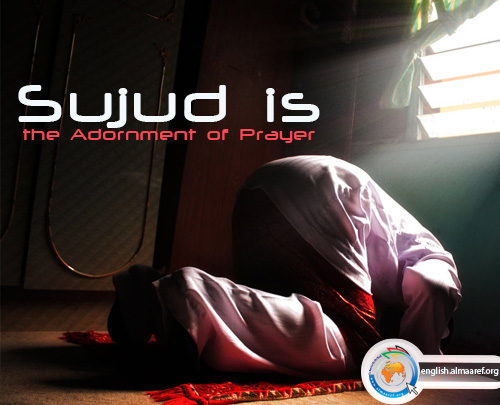The wash from the great ritual impurity is dutiful when semen gets out
whatever the cause is and whether it gets out during sleep or during
wakefulness.
When semen gets out, the religiously responsible person must wash from the great
ritual impurity in case he wants to perform any worship in which purity from the
great ritual impurity is conditional, like: the fasting, the praying, and the
circumambulating.
In case the semen stirs within yet does not get out, then the great ritual
impurity will not have happened and thus the wash from it will not be dutiful.1
In case a certain substance gets out without the religiously responsible person
knowing whether it is semen or not, then In case the substance gets out from the
man with a gush and lust and feebleness, he must judge it to be semen and thus
wash from the great ritual impurity.2
As regards getting rid of all the secreted semen through urination, in case the
one washing did not do so, and then after the wash a dampness doubted to be
semen or something else gets out from him, he must build on that it is semen and
thus wash from great ritual impurity again.3
The Forbiddances While One Is in Great ritual Impurity
While the religiously responsible person is in great ritual impurity, he is
forbidden to4:
1- Touch the Term of Majesty “Allah” and all His Attributes and the Names which
are special to Him and those which are not special to Him in case they are
mentioned as a characteristic to Him, such as: The Most Merciful.
2- Touch the writing of The Noble Qur’an and all the diacritical marks related
to Him.
3- Touch the Names of the prophets and authorities and Sayyda Al-Zahraa (God’s
peace bestowed upon him) as a dutiful cautiousness.
4- Enter into The Sacred Mosque [Al-Masjid Al-Haram] and the Noble Prophetic
Mosque at any condition.
5- Enter into the mosques and stay there unless entering them is in terms of
passing through them i.e. getting in from a door and getting out from another
door.
6- Put anything in the mosque, yet it is not forbidden to take something from
it.
7- Read the Prostration Verses from the following four chapters of Azaem: Al-Alaq
[The Clot], Al-Najem [The Star], Al-Sajda [The Prostration], and Fossilat
[Explained in Detail], yet it is not forbidden to read the other verses of these
chapters.5
The Duties of the Wash from the Great Ritual Impurity
The duties of the wash from the great ritual impurity are classified into
three groups: the duties related to the one washing, the duties related to the
water of washing, and the duties related to the wash itself.
A- The Duties Related to the One Washing
As was mentioned as regards the intention in the ablution, the intention is
also dutiful in the wash from the great ritual impurity. It is not conditional
to utter the intention; it is enough to think about it.6
The wash is considered to be incorrect when there is a barrier preventing the
water from reaching the skin, as was mentioned in the judgments of the ablution.7
- The wash for the sake of cleaning the body must be separated from the wash
from the great ritual impurity. It is not a must that all the body be purified
before starting the wash; it is enough in washing each organ that it be pure
when washing it. Therefore, in case the organ is purified before washing it,
then the wash is considered to be correct. On the other hand, in case the organ
is not purified before washing it, then the wash is considered to be incorrect;
also, the water of the wash becomes impure.8
- In case one, while washing from the great ritual impurity, does the little
ritual impurity, does not have to restart; he has to complete his wash which is
considered to be correct. Still, he has, after the wash from the great ritual
impurity, to perform ablution for the worships demanding one’s being pure from
the little ritual impurity.9
- In case the religiously responsible person has to perform several washes,
whether dutiful or desirable and in case the wash from the great ritual impurity
is from them and in case he has the intention to perform it, then this wash will
settle for all the other washes.10
- In addition to that it is dutiful that the water reaches all the skin of the
head, it is a dutiful cautiousness, for both the man and the woman, to wash all
the hair.11
B- The Duties Related to the Water of Washing
It is conditional that the water with which one washes from the great ritual
impurity be:
1- Complete water
2- Pure water
3- Permissible water
C- The Duties Related to the Wash Itself
- As regards the wash from the great ritual impurity, it is conditional that
the religiously responsible person performs it by himself in case he is able to.
In case he is unable to, he is no more obliged to abide by the condition of
performing the wash by himself, and it becomes permissible that someone else
washes him, taking into consideration the judgments of forbidden looking and
covering the private parts.12
- The arrangement is conditional in the ordinal wash from the great ritual
impurity. Arrangement means to wash the head and the neck at first, and then the
rest of the body through washing the right part firstly and then the left part
as a dutiful cautiousness.13
- The succession is not conditional in the ordinal wash from the great ritual
impurity. It is permissible that the religiously responsible person washes his
head, and then an hour later washes his right part, and then after that washes
the left part.14
- The arrangement is not conditional in the immersing wash. It is permissible to
get immersed starting from the head or starting from the legs, yet the immersing
of the body must take place in the form of one customarily thrust.15
- The wash from the great ritual impurity is the only wash that settles for the
ablution.16
Performing Ablution with Clean Sand or Earth
This means to attain purity with sand instead of water in case of the presence
of one of the following factors which prevent the usage of water:
1- Fear while trying to reach the water (for the self or the family or the money
of the thieves or the wolves)17
2- Cause of harm from the usage of water (like the presence of smallpox disease
or that water results in it or intensifies it)18
3- Embarrassment and hardship due to the usage of water (like the unbearable
severe coldness or the exposure to disdain in order to get water) 19
4- Disability to use the water due to a religious forbiddance, (in case the
water is impure or usurped or in case it is used to lift an impurity)20
Important Judgments
- It is permissible, as regards the performance of ablution with clean sand or
earth instead of ablution or wash with water, to perform all the religious
issues which require ablution or washing, like: the prayer, entering the
mosques, touching God’s Names and the Qur’anian verses, etc. This is so unless
the performance of ablution with clean sand or earth is performed due to the
lack of time; then, it is not permissible to perform anything with it save the
prayer.21
- If one is able neither to perform ablution with water nor with clean sand or
earth, it is a dutiful cautiousness to perform the prayer in its stated time and
then to repeat it after the stated time.22
With What to Perform Ablution
There are three levels, the first of which is prior to the second and the
second of which is prior to the third.
- First Level: It is the earth i.e. the absolute surface of the earth
with the soil, rocks, and sand.23
- Second Level: In case the earth is not available, one may perform
ablution with the dust after having gathered it.24
- Third Level: In case the dust is not available, one may perform
ablution with the mud after having dried it if it is possible; otherwise, he may
perform ablution with it without having dried it.25
The Duties of Performing Ablution with Clean Sand or Earth
The duties of performing ablution with clean sand or earth are classified
into three groups: the duties related to the religiously responsible person, the
duties related to with which the ablution is performed, and the duties related
to the ablution itself.
A- The Duties Related to the Religiously Responsible Person
1- Intention26
2- No barrier (such as the ring) on the organs27
3- The purity of the organs as a cautiousness in case this is possible;
otherwise, one has to perform the ablution with the state the organs are in28
B- The Duties Related to with Which the Ablution Is Performed
1- It must be permissible.
2- It must be pure.29
C- The Duties Related to the Ablution Itself
1- The religiously responsible person must perform it by himself. In case he
is unable to, it is permissible that someone else performs the ablution for him.30
2- Arrangement i.e. starting with the forehead then the right palm and then the
left palm31
3- Succession i.e. not to resort to separation that contradicts the form of the
performance of ablution with clean sand or earth32
4- Wiping from up to down33
The How of Performing Ablution with Clean Sand or Earth
First: Intending to perform it instead of ablution or washing with water
Second: Hitting the bottoms of the palms at once on the earth
Third: Wiping from up to down the entire forehead and its sides from the
line of the growth of the hair to the eyebrows and the start of the nose
Fourth: Wiping the surface of the right hand with the left palm
Fifth: Wiping the surface of the left hand with the right palm
Sixth: Hitting, as a dutiful cautiousness, the earth again and wiping the
right hand with the left palm and the left hand with the right palm34
1- Tahreer Al-Waseela
[Editing the Means]/ Part One/ Page 36/ Question 1
2- Ajweebat Al-Istifta’at [The Answers to the Consultations]/ Part One/ Page 53/
Question 177
3- Tahreer Al-Waseela/ Part One/ Page 43/ Question 15
4- Tahreer Al-Waseela [Editing the Means]/ Part One/ Page 38
5- Ajweebat Al-Istifta’at [The Answers to the Consultations]/ Part One/ Page 58/
Question 119
6- Tahreer Al-Waseela/ Part One/ Page 39/ Question 1
7- Tahreer Al-Waseela/ Part One/ Page 39/ Question 3
8- Ajweebat Al-Istifta’at [The Answers to the Consultations]/ Part One/ Page 53/
Question 179
9- Ajweebat Al-Istifta’at/ Part One/ Page 55/ Question 185
10- Ajweebat Al-Istifta’at/ Part One/ Page 55/ Question 187
11- Ajweebat Al-Istifta’at/ Part One/ Page 56/ Question 193
12- Tahreer Al-Waseela [Editing the Means]/ Part One/ Page 42
13- Tahreer Al-Waseela [Editing the Means]/ Part One/ Page 42
14- Ajweebat Al-Istifta’at [the Answers to the Consultations]/ Part One/ Page
56/ Question 192
15- Tahreer Al-Waseela/ Part One/ Page 42/ Question 8
16- Tahreer Al-Waseela/ Part One/ Page 41/ Question 6
17- Ajweebat Al-Istifta’at/ Part One/ Page 55/ Question 188
18- Tahreer Al-Waseela/ Part One/ Page 103
19- Ajweebat Al-Istifta’at/ Part One/ Page 62/ Question 213
20- Tahreer Al-Waseela [Editing the Means]/ Part One/ Page 104
21- Tahreer Al-Waseela/ Part One/ Page 104
22- Ajweebat Al-Istifta’at [The Answers to the Consultations]/ Part One/ Page
59/ Question 202
23- Ajweebat Al-Istifta’at/ Part One/ Page 61/ Question 212
24- Tahreer Al-Waseela/ Part One/ Page 106/ Question 1
25- Tahreer Al-Waseela/ Part One/ Page 107/ Question 6
26- Tahreer Al-Waseela/ Part One/ Page 107/ Question 6
27- Ajweebat Al-Istifta’at [The Answers to the Consultations] / Part One/ Page
61/ Question 209
28- Tahreer Al-Waseela [Editing the Means] / Part One/ Page 110/ Question 1
29- Ajweebat Al-Istifta’at/ Part One/ Page 61/ Question 211
30- Tahreer Al-Waseela/ Part One/ Page 110/ Question 1
31- Tahreer Al-Waseela/ Part One/ Page 110/ Question 1
32- Tahreer Al-Waseela/ Part One/ Page 110/ Question 1
33- Tahreer Al-Waseela/ Part One/ Page 110/ Question 1
34- Ajweebat Al-Istifta’at/ Part One/ Page 6/ Question 209




















